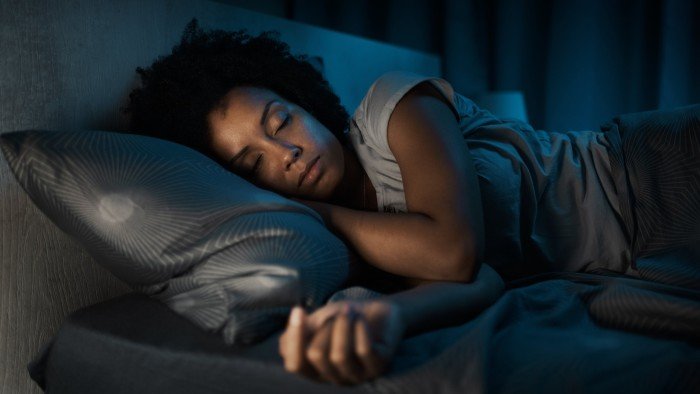Stay informed with free updates
Simply sign up to the Science myFT Digest — delivered directly to your inbox.
People in high-tech societies enjoy longer and better-quality sleep than those in non-industrialised environments, but suffer more potentially damaging disruption to natural biological rhythms, research has found.
The findings challenge the idea that technology dependence is causing an epidemic of sleep deprivation, but support the thesis that factors such as lack of sunlight and the use of blue-light-emitting screens may have harmful effects.
The study is part of an expanding effort to understand how aspects of restlessness in urban life might contribute to fatigue, depressive disorders and physical conditions such as obesity and cancers.
It suggests the story might be less straightforward than the “sleeplessness epidemic” that some researchers have indicated is a consequence of 21st-century conditions.
“The idea that sleep has been getting worse because of modernity has been the dominant narrative for over a decade,” said David Samson, lead author of the paper published on Wednesday in the Royal Society journal Proceedings B.
“Our research shows us a much more nuanced picture. Sleep in large-scale economies is much better than in small-scale — but this comes at a cost, by disrupting our delicate circadian systems.”
The study looks at the underlying causes of sleep problems that have been estimated to affect more than 90mn people in the US alone. It analysed metadata from studies carried out between 1967 and 2022 from 21 countries, including highly industrialised and non-industrialised societies.
People slept for an average of about 45 minutes longer each night in the industrialised societies, the research found, for a total of just over seven hours. Those in an industrialised environment scored 14 per cent higher on “sleep efficiency”, a measure of the proportion of their time in bed that an individual spends sleeping.
But the researchers found a different story when they examined circadian function, or the physical, mental and behavioural states that the body experiences in a 24-hour cycle. The study suggested a “significant negative association between industrial society and a reduction in circadian function”, the paper says.
Other studies have suggested that disruption to normal circadian rhythms can have damaging and wide-ranging health impacts, because of effects such as inflammation and suppression of the sleep-regulating hormone melatonin.
Circadian dysfunction has been linked to a higher risk of breast cancer, increased cardiovascular disease risks in night-shift workers, and mental health problems.
One possible explanation for the study’s findings is that people living in industrialised settings enjoy the sleep benefits of amenities such as air conditioning and comfortable bedding, the researchers said.
On the other hand, they face more exposure to artificially generated light from street lamps to smartphone screens, which interferes with circadian rhythms.
Industrialised societies should “absolutely hold on to the major technological gains in sleep security” but do more to “sync our circadian clocks with the natural world”, Samson said.
This could include “biomimicry” to create doses of bright light in the morning and “oscillating temperatures that rise gently with the sun”, he added.
The “interesting and thoughtful” research suggested ideas such as how “houses of the future could be better equipped to maintain our circadian health”, said Malcolm von Schantz, professor of chronobiology at Northumbria University.
“The windows on modern aircraft can be darkened or brightened at the touch of a button,” he said. “Will the windows of future houses be programmed to start letting blue light through during the morning even before we wake up?”
